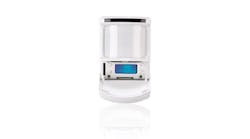Electrical engineers and contractors are growing comfortable with solid-state lighting technology and controls, giving it generally positive ratings for a range of factors from system performance to technical support, but showed room for improvement in the ease of installation and commissioning, according to a study released last week by the Lighting Controls Association (LCA).
In a report on the study at the LCA’s website, Craig DiLouie takes a detailed look at the results of three surveys sent to subscribers to DiLouie’s LightNOW blog and subscribers to the LCA’s monthly newsletter. “The goal was to create a snapshot of behavior and satisfaction regarding LED lighting and lighting controls,” DiLouie said in the LCA post.
The report points out that electrical engineers responding seemed fairly confident about LED lighting and control technologies. “The average respondent is more than “somewhat satisfied” with the performance of LED lighting (5.7 on a scale of 1-7 with 7 being ‘very satisfied’), performance of LED lighting when operated by automatic lighting controls (5.6), and technical support provided by LED lighting (5.2) and lighting control (5.2) manufacturers. The average respondent is “somewhat satisfied” with the ease of commissioning lighting controls for LED lighting (4.1), suggesting greater potential for improvement than the other areas studied.”
Satisfaction among electrical contractor respondents tracked similarly, showing confidence in the technology. “The average electrical contractor respondent reported being more than “somewhat satisfied” with ease of installation of LED lighting (5.3), ease of installation of lighting controls for LED lighting (5.0), performance of LED lighting (5.9), and performance of LED lighting when operated by lighting controls (5.6). The average respondent is “somewhat satisfied” with the ease of commissioning lighting controls for LED lighting (4.6).”
Among the study’s more interesting findings is a growing acceptance of wireless control solutions. A majority of the survey’s electrical engineer respondents generally prefer to specify hardwired (80%) over wireless (11%, with 9% having no preference) technology for connecting automatic lighting controls used to control LED lighting. For spaces where installing low-voltage control wiring would be costly or difficult, however, preference for wireless jumps to 24%. Electrical contractors, meanwhile, show a greater interest in wireless systems, particularly for areas where installing low-voltage communication wiring would be costly or difficult.
“This suggests that wireless lighting control has gained in popularity for applications where installing control wiring is difficult or cost-prohibitive, and has even achieved a fair degree of acceptance for other applications. It also suggests wireless control is more preferable to installers.”
Read: "Market Research Suggests High Degree of Confidence with LED Lighting and Controls", by Craig DiLouie, Lighting Controls Association



